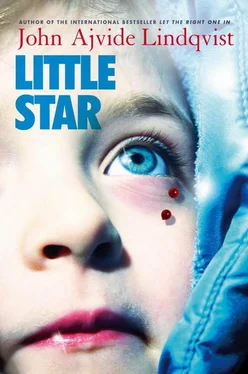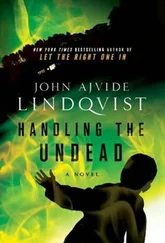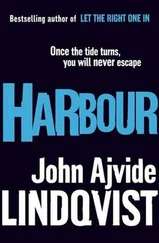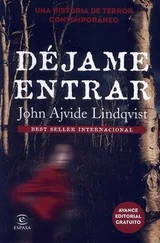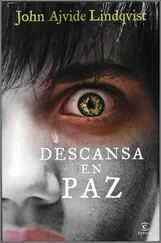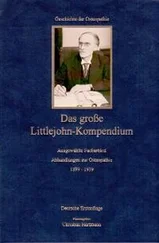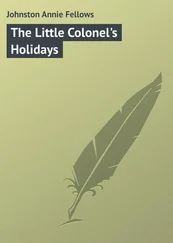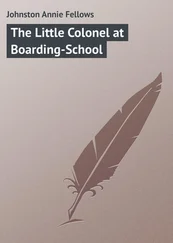Theres pointed towards Skansen and said, ‘That’s what I’m going to sing. There. The day after tomorrow. You will all come. Then it will be over. It will be good.’ She got up and went over to the fence, leaned against the wire and let out a low growl, trying to entice the wolves without success.
‘What do you mean, over?’ said Caroline. ‘What does she mean, it’ll be over? I don’t understand what she’s talking about.’
Teresa looked towards Skansen, imagining the Solliden stage somewhere far beyond the trees, just as she had seen it on TV. The crowds, the singers, the camera cranes and ‘Stockholm in My Heart’. The wall of young girls, just like them and very different from them, pressed against the barriers right at the front as they sang along. Theres standing on the stage. The rest of them in the audience. Among all those people.
‘Ronja?’ said Teresa. ‘Do you remember asking me where we were actually going, what we were going to do?’
Ronja nodded and shrugged her shoulders. ‘We’ve done stuff.’
‘No,’ said Teresa. ‘We haven’t done anything. We have only prepared ourselves.’ She glanced at the sign on the wolf enclosure: Do not feed the animals, then waved her hand towards it, towards Skansen. ‘But we are going to do something. We are going to feel good forever. And no bastard is ever going to forget us.’
***
Hitachi DS14DFL.
Weight 1.6 kg. Total length 210mm. Ergonomic, rubber-coated handle. 13mm chuck capacity. 1,200 revolutions per minute.
Teresa had searched for over an hour to find the right tool. It had to be battery operated, and have a slender handle which would suit small hands. It mustn’t be too big or heavy, but must be able to run a reasonably thick drill bit. It had to be available to buy all over the place. And it had to look good.
Behind the nondescript name Hitachi DS14DFL she found the answer. A slender tool with a long-lasting heavy duty lithium-ion battery. The handle looked inviting: she longed to hold it, to extend her arm with a sharp, whirling point.
She clicked on the group containing the other girls’ email addresses and forwarded the product information along with details of a number of different shops where the machine could be bought. They could improvise when it came to other tools or weapons, but their claws would be the same.
Sunday had become Monday while she sat at the computer searching for this: for the tool that would free them, at long last, from these lives in which they had never asked to be imprisoned. The moon was high in the sky outside her window, and soon she would be gone.
The itch in her body would not let her be. She paced the strip of moonlight on the floor of her bedroom, thinking about her mother and father asleep in their beds, thinking about the drill, thinking about the axe in the cellar. The only thing that stopped her was her reluctance to start a chain of events that would prevent her from being there on Tuesday.
Her fingers were tingling, the soles of her feet were burning and she was panting like a starving animal as she forced herself to quit the pacing before she woke everybody up; a knock on the door, a curious head poked into her room, and this particular night could end in disaster.
She sat on the bed and did something she hadn’t done for several months: she took her medication. She stuffed three tablets in her mouth and swallowed them without water. Then she sat still, hands resting on her knees, breathing and waiting for something to happen.
When there was no change after half an hour and her body was still being torn apart, she sat down at the computer and wrote a letter. She used the language Theres would use, because it helped her gather and simplify her thoughts. When the letter was finished she printed out four copies and placed them in envelopes on which she wrote addresses she had looked up on the internet.
Then she stood by the window looking at the moon, hugging herself and trying to survive the night.
On Monday she caught the bus to Rimsta and bought the chosen drill with the last of her savings. On the bus back she sat there holding the box close like a lifebuoy, and when she got home she unpacked the drill and placed it in the charger.
She planned and visualised, tried to think herself into the situation. She watched clips from Sing Along at Skansen on the net to see how the audience was deployed, the big tree in the middle, where the cameras were. She was afraid.
Afraid that her courage would fail when it came to the crunch, afraid that she would miss her opportunity because of the cowardice and the human frailty that still chafed away somewhere inside her.
That evening, Johannes rang.
The voices of her parents and her brothers had been reduced to meaningless background noise, whether they were speaking to her or not. She had nothing to do with them. So how come Johannes’ voice could still be heard?
‘Hi Teresa.’
Teresa. That name. She did remember it, she knew that in some way it meant her. Yes. When Johannes said it she could remember that other girl. Before Theres, before ‘Fly’, before Max Hansen and before Urd. Poor little Teresa with her poor little poems and her poor little life.
She spoke in Teresa’s voice. It was still there. In a way it was pleasant to speak in that voice. Teresa wasn’t suffering from this tearing hunger, Teresa didn’t have a bloody task to carry out. Teresa was Johannes’ friend, and always would be.
‘Hi Johannes.’
She lay down on the bed, closed her eyes and had a perfectly normal conversation with Johannes. They talked about Agnes, about people in school, about the alterations to the library. For a while Teresa pretended that these things were important, and it was nice.
After a while they slipped into talking about memories. Teresa allowed herself to be led, without resisting, to their cave, their bike rides, the places where they went swimming, the sheep. They talked for over two hours, and when Teresa picked up the drill and weighed it in her hand after saying goodbye, the whole thing seemed impossible.
She lunged, raced the motor and simulated resistance, her limbs flailing as she screamed, ‘Urd!’
Urd.
She managed to get a few hours’ sleep that night, lying in bed with the drill and squeezing the wonderful, soft grip that fitted her hand as if it had been made for her.
***
A person can think murderous thoughts and hide them behind a smile, she can fantasise about blood flowing and brain matter splattering as she eats her muesli, humming quietly to herself. But even if nothing concrete shows on the outside, people around her will notice something sooner or later. It leaks out like radiation or osmosis, seeping out of her very being.
Teresa’s parents had started to be afraid of her. You couldn’t put your finger on anything definite that she said or did, but there was a kind of shimmer around her, a black aura that made them feel uncomfortable as soon as she walked into a room.
When Teresa asked for a lift to Österyd more than an hour before the train was due to leave, no one asked any questions. They knew she was going to Stockholm to meet that friend of hers, but that was all they knew. If she wanted to go to Österyd first, then she could go to Österyd.
Teresa’s rucksack looked heavy, but when Göran offered to help her carry it she just looked at him in a way that made him lower his hands. They got in the car in silence, and they drove into Österyd in silence. When Teresa told him where she wanted to be dropped off, Göran said, ‘Isn’t that where Johannes lives?’
‘Yes.’
‘Are you going to see him?’
Читать дальше
